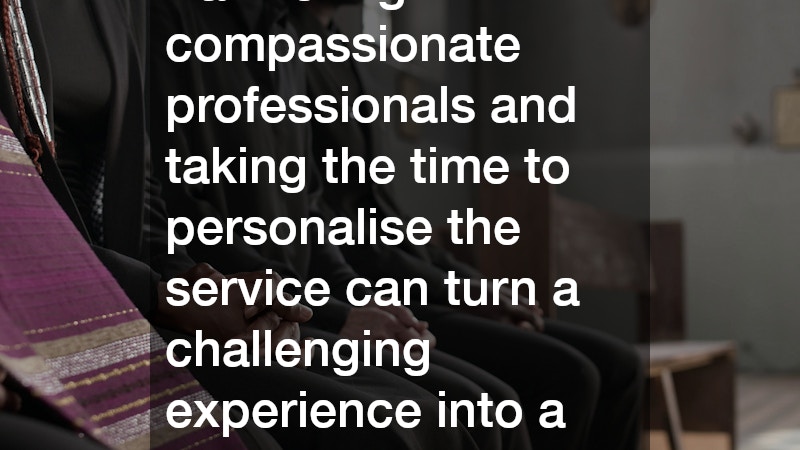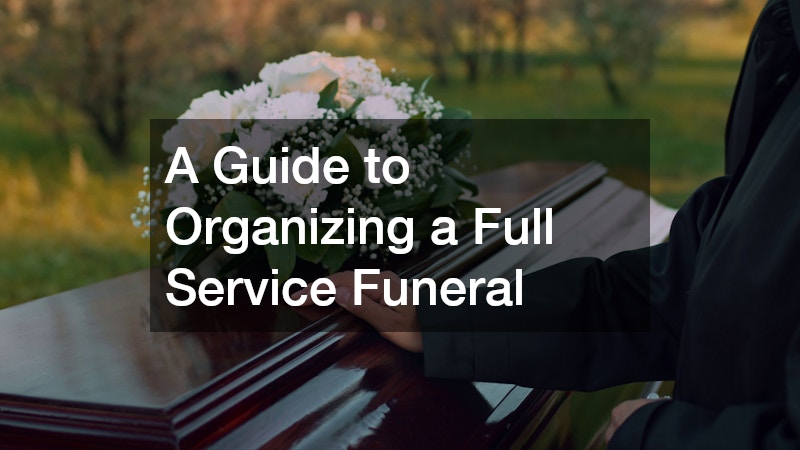Organising a funeral is one of life’s most emotional responsibilities. When a loved one passes away, the grief can be overwhelming and the added task of arranging a farewell can feel daunting. A full service funeral provides a comprehensive and respectful way to honour a person’s life, encompassing every step from initial planning through to the final memorial. This guide aims to help families understand what’s involved and how to organise a full service funeral with compassion, dignity and clarity.
Understanding What a Full Service Funeral Includes
A full service funeral typically incorporates a range of elements that provide a complete tribute to the deceased. This includes transportation of the body, preparation and embalming if required, arranging viewings or visitations, coordinating a ceremony with religious or secular elements, managing the burial or cremation and offering follow-up support for the family. These services are usually overseen by a funeral director, whose role is to handle the logistics and offer guidance throughout the process.
The ceremony itself often takes place in a chapel, funeral home, place of worship or another meaningful location. It may feature readings, eulogies, music and visual tributes that reflect the personality and legacy of the deceased. While some choose to have a traditional service, others may opt for a more personalised celebration of life. A full service funeral provides the flexibility to tailor every component to honour the unique individual being remembered.
Starting the Planning Process
One of the first steps in organising a full service funeral is selecting a reputable funeral provider. It’s important to find a director who is not only experienced but also empathetic and able to accommodate cultural or religious preferences. Once a provider is chosen, they will guide you through the essential decisions, starting with whether the service will be a burial or a cremation.
From there, you’ll choose a date and venue, which should consider family availability and any religious or community obligations. It’s also crucial to determine whether there will be a viewing or visitation period prior to the ceremony. This step allows loved ones a private moment to say goodbye, which can be deeply comforting in the grieving process.
Personalising the Ceremony
A meaningful funeral is one that captures the essence of the person being honoured. Many families choose to incorporate personal touches, such as favourite songs, photos or cherished items. The eulogy is another central component and can be delivered by a family member, friend, celebrant or religious leader.
Floristry, printed materials and multimedia presentations are also part of personalising the event. Modern funerals may include video tributes, live streaming for those who cannot attend in person and memory tables where guests can write messages or share photographs. These details not only help to celebrate the deceased’s life but also provide comfort and connection to those in mourning.
Legal & Administrative Considerations
While the emotional aspects of planning are significant, there are also important legal and administrative duties that must be addressed. These include registering the death, obtaining a death certificate and managing the deceased’s will or estate. A full service funeral provider will often assist with these formalities or recommend legal professionals who can support the process.
If the deceased had pre-paid or pre-planned their funeral, much of the administrative burden may already be handled. Pre-arranged funerals can be an invaluable gift to surviving family members, relieving them of major decisions during an already difficult time.
Costs & Budgeting
The cost of a full service funeral can vary depending on the level of personalisation, location and the services chosen. It typically includes funeral director fees, transport, venue hire, officiant services, casket or urn, burial or cremation fees and any optional extras such as flowers or catering.
To manage costs effectively, families should request an itemised quote and discuss packages that meet both their needs and budget. Many funeral homes offer payment plans or can guide families through available financial assistance options. Being transparent about costs early in the planning process ensures that financial stress does not compound emotional strain.
Supporting Grief & Healing
A full service funeral does more than mark the end of a life—it provides a space for loved ones to gather, share stories and begin the healing journey. The rituals and symbolism associated with funerals serve a psychological function, helping individuals to process loss and find comfort in shared remembrance.
After the service, many families choose to host a wake or reception. This informal gathering allows for additional reflection and connection, often held at a family home, community centre or venue associated with the deceased. Some funeral services also offer grief support resources or referrals to counselling services, which can be a valuable component of long-term healing.
Honouring Life with a Thoughtfully Planned Farewell
Organising a full-service funeral is both a practical and emotional undertaking. It requires thoughtful coordination, attention to detail and heartfelt consideration of the individual being honoured. While the process can seem complex, partnering with compassionate professionals and taking the time to personalise the service can turn a challenging experience into a powerful tribute.
A full service funeral offers a comprehensive way to say farewell, blending tradition with personal expression and logistical support. By understanding each component and making informed choices, families can ensure that their loved one is remembered with the respect and dignity they deserve.
.

